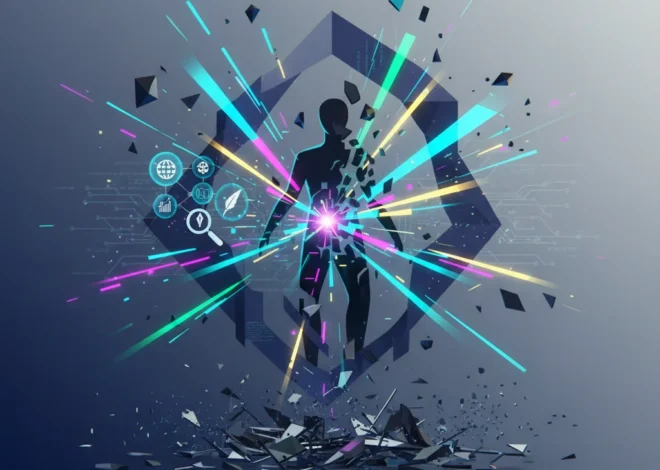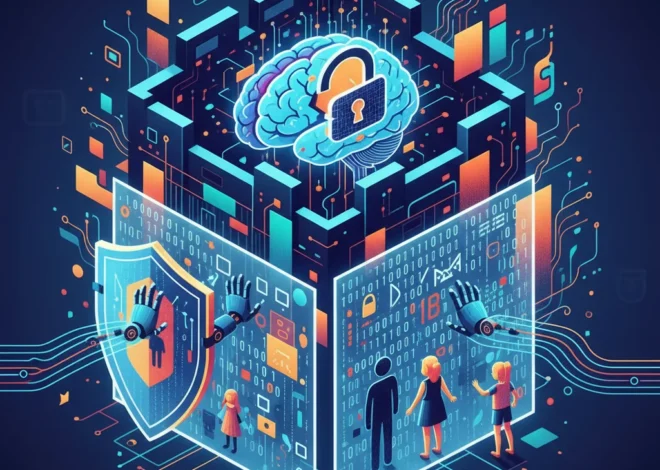
The AI Earthquake: Is Google’s Search Throne Finally Starting to Crumble?
For over two decades, it’s been a digital reflex. Have a question? “Just Google it.” That simple phrase represents one of the most dominant technological empires ever built. Google Search isn’t just a tool; it’s the gateway to the internet, a verb woven into the fabric of our daily lives. But what if that gateway is about to be completely redesigned?
A tremor is running through Silicon Valley, and its name is generative artificial intelligence. Spearheaded by the wildly popular ChatGPT, a new way of finding information has emerged, and it doesn’t involve a list of ten blue links. It’s conversational, it’s direct, and it’s forcing us all—from casual users to seasoned developers and savvy entrepreneurs—to ask a monumental question: Is Google’s reign finally facing a real challenger?
This isn’t just another tech headline; it’s a potential paradigm shift. Let’s dive deep into this battle of titans, explore what it means for the future of technology, and uncover the opportunities this disruption is creating.
The Old Kingdom: Why Google’s Model Was Unbeatable
To understand the threat, we first need to appreciate the genius of Google’s dominance. At its core, Google is an index. It uses an army of web crawlers to read and categorize trillions of web pages. When you type in a query, its sophisticated algorithms, built on decades of machine learning, sift through that index to present you with a ranked list of the most relevant and authoritative sources.
The business model is brilliance itself: auction off space alongside these results to advertisers. It’s a win-win. You get your answer, and the advertiser gets to reach an interested customer at the precise moment of intent. This ad engine has made Google one of the most profitable companies in history.
But the user experience has its friction points:
- The Synthesis Problem: Google gives you the ingredients (links), but you have to do the cooking (reading, comparing, and synthesizing the information yourself).
– The SEO Gauntlet: You often have to wade through content optimized to rank high, not necessarily to provide the best answer, dodging pop-ups and ads along the way.
– Information Overload: For complex topics, a simple query can return millions of results, leading to more confusion than clarity.
Google has been working to solve this with things like Featured Snippets and Knowledge Panels, which provide direct answers. In hindsight, these were the first signs that even Google knew the “list of links” model wasn’t the final frontier.
The Disruptor: How Conversational AI Changes the Game
Enter ChatGPT and its contemporaries. These Large Language Models (LLMs) operate on a fundamentally different principle. They aren’t search engines; they are synthesis engines. Trained on a colossal dataset of text and code from the internet, they don’t just find information—they generate a brand new, human-like response based on the patterns they’ve learned.
The experience is transformative. Instead of asking, “best laptop for programming under $1500,” and getting a list of 10 tech review sites, you can have a conversation:
“I need a laptop for programming, mostly Python and some light container work. My budget is around $1500. I value battery life and a great keyboard over a top-tier GPU.”
The AI can process this nuance and deliver a tailored recommendation in a single, coherent paragraph. It’s a shift from searching to consulting. This powerful form of automation for knowledge work is delivered instantly through sophisticated cloud-based SaaS (Software as a Service) platforms.
The AI Advantage: Why It’s So Appealing
- Direct Answers: It eliminates the need to click through multiple sources. The answer is presented directly to you.
- Contextual Understanding: It can remember previous parts of your conversation, allowing for follow-up questions and deeper exploration of a topic.
- Creative and Technical Power: It can write code, draft emails, create business plans, and explain complex scientific concepts in simple terms. This is a massive leap in innovation.
The Inevitable Collision: Strengths and Weaknesses
This new paradigm isn’t without its serious flaws. When we pit Google against Generative AI, we see


